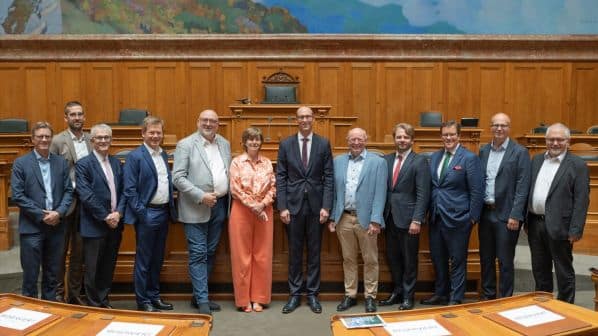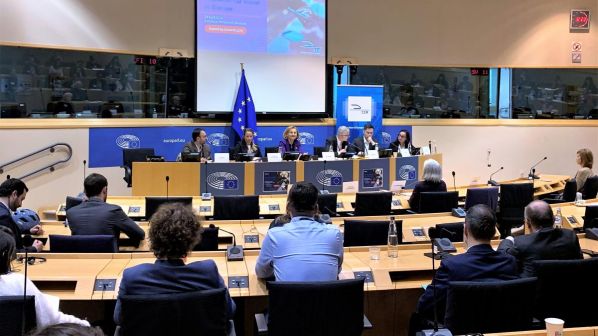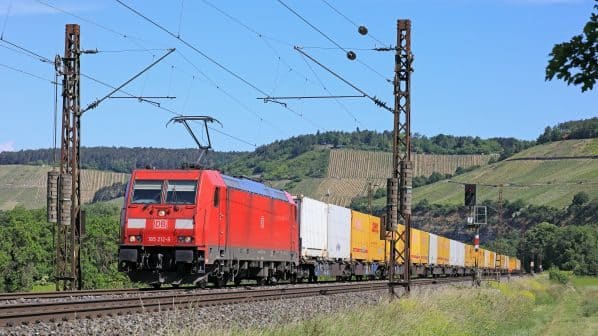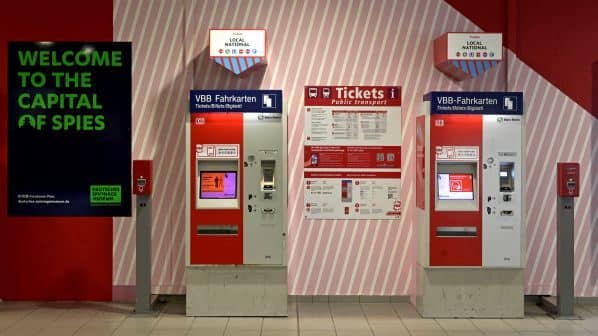THE CEOs of 12 European operators and national railway groups have signed a declaration setting out their intention to encourage modal shift to rail and make rail freight the backbone of European logistics, while setting out the policy framework that will be required to deliver these objectives.
The Berne Declaration was signed on July 1 by CEOs including those of German Rail (DB), Austrian Federal Railways (ÖBB), French National Railways (SNCF) and Swiss Federal Railways (SBB) during the European Railways CEO Summit in Berne hosted by SBB.
Other signatories include the Community of European Railway and Infrastructure Companies (CER), the International Union of Railways (UIC), the International Rail Transport Committee (CIT), and the Association of German Transport Companies (VDV).
To increase modal share and contribute directly to achieving the climate change objectives of the European Green Deal, the signatories aim to develop “seamless, punctual, predictable and sustainable rail transport” for all customers and increase the efficiency of the rail networks across Europe.
The declaration says that the rail customer experience of the future will be actively shaped by the development of new international day and overnight passenger services between European capitals and major cities, and by investing in “modern, reliable and interconnected” infrastructure for cross-border services.
Rail travel will be made easier and more comfortable by delivering seamless international ticketing through the implementation of the CER Ticketing Roadmap, and by developing real-time passenger information solutions.
To make rail freight the backbone of European logistics, the declaration says that its signatories will create a single European network that is “complete, integrated and multimodal,” including the development of intermodal terminals providing fast and reliable transhipment.
The Digital Automatic Coupler (DAC) will be deployed throughout Europe, and rail freight will be made “seamless, flexible and fast” by providing real-time information and implementing digital technology including Digital Capacity Management (DCM) and ATO.
To support these objectives, the declaration calls on policymakers at the European and national level to provide the necessary policy framework, which should ensure that sufficient, predictable and sustainable long-term financing is provided for the railway sector.
This should include adequate funding for infrastructure maintenance and development, in line with the objectives of the EU Trans-European Transport Network (TEN-T) Regulation that is currently undergoing revision.
The declaration also says that this revision process should be swiftly concluded, and the revised TEN-T Regulation implemented to a similar timescale.
In the passenger sector, policymakers should trust the sector to establish suitable framework conditions for implementing digital solutions such as e-ticketing, the subject of the European Commission’s (EC) proposed directive on Multi-Modal Digital Mobility Services (MDMS).
The declaration also says policymakers should support the sector to implement the CER Ticketing Roadmap, and work together with operators to develop cross-border services by using existing instruments like PSO contracts.
In the freight sector, the declaration calls for a European master plan for DAC deployment and says that this programme should receive sufficient funding.
Policymakers should also provide a legal framework for better international capacity allocation. In particular, this should enable the implementation of the rail sector’s Timetabling and Capacity Redesign (TTR) programme “without altering the existing legal framework more than necessary.”
The declaration calls on policymakers to ensure sufficient funding is made available to enable the continuous deployment of ERTMS in a synchronised manner.
“We all need to be aware of the fact that without a strong railway sector, Europe can’t reach its climate targets,” says CER chair and ÖBB CEO, Mr Andreas Matthä.
“We are doing our part, but we can only be successful in increasing the modal share of rail within a suitable political framework. With the Berne Declaration, the European railway community is sending a strong signal to political decision-makers.”
“Railways connect Europe. They are safe, comfortable, reliable and above all, environmentally and socially friendly,” says CER executive director, Mr Alberto Mazzola.
“We call on all policymakers to support the increase in modal shift to rail with the appropriate and necessary measures.”




